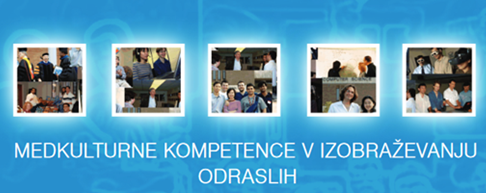The scientific monography consists of four chapters written by experts, who work in the field of migration studies, legal protection of human rights and adult education. The authors explain process of shaping an individual’s identity, multiculturalism as social construct, creation of stereotypes through language code and the challenges of legal protection through multi-cultural practices. In last chapter are described four two-day courses for intercultural competences, which were conducted in 2008 by the Andragogic centre for adult educators. Monography provides wider picture of integration and explains why education, which based on intercultural dialogue is important for new generations.

Our cultural environment is changing quickly and becoming more and more diversified. On the other hand, increasing cultural diversity brings new social and political challenges. Cultural diversity often triggers fear and rejection between people, that is why dialogue between cultures, the oldest and most fundamental mode of democratic conversation, is an antidote to rejection and violence.
Teachers play an important role in strengthening intercultural dialogue and helping to prepare future generations to use it in their everyday life. Similarly, teachers can inspire other teachers to learn from each other how to use intercultural dialogue in classrooms. It is therefore important to include training strategies and working methods in teachers’ training that prepare them to deal properly with the new situation of diversity, discrimination, racism, xenophobia, sexism and marginalization and that they can solve conflicts peacefully. There are many unpredictable situations in each learning situation at school or in a study group. Therefore, teachers need to learn how to be tolerant, open-mind, flexible and empathic, but fair and consistent in setting necessary boundaries.
Intercultural competencies are one of the key competences needed for successful integration into modern societies. With the monography, the Andragogic Centre wanted to give some ideas to those, who decided to conduct similar training. First four chapters will help teachers understand the importance of intercultural oriented pedagogy and the last one will serve as an example, how this can be done in practice.
More information is available in Slovene.
